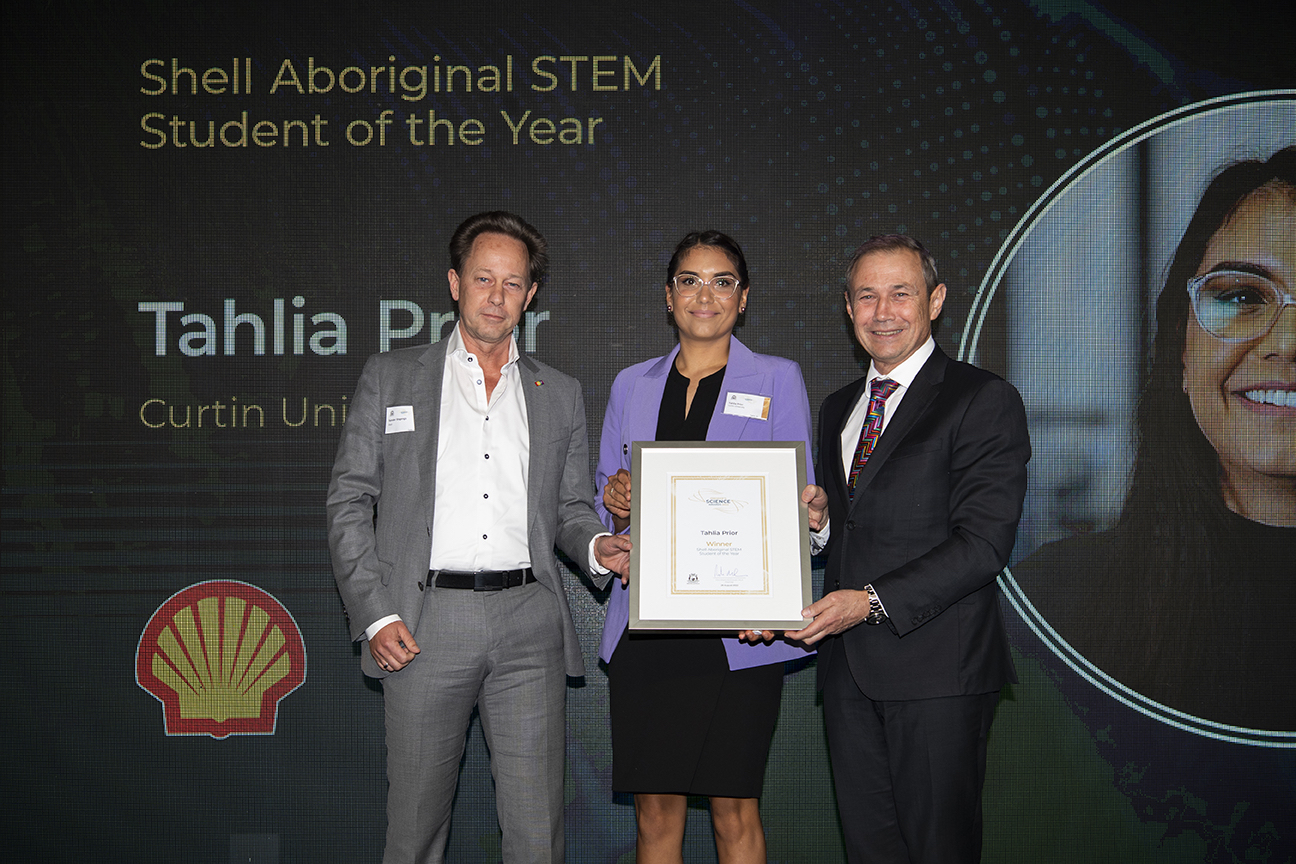Shell Aboriginal STEM Student of the Year is awarded to an Aboriginal or Torres Strait Islander undergraduate or postgraduate student who demonstrates excellence in STEM studies.
This year, final year civil engineering student at Curtin University, Tahlia Prior was one of the winners. She speaks to us about bringing an Indigenous worldview to the profession and her plans for after she graduates.
Why did you choose civil engineering?
I was 15 years old when I did a personality quiz in my year 10 careers class, which recommended a career based on your personality. The first one was engineering and the second was architecture. I thought an engineer was someone that worked on cars and so thought I’ll just become an architect. But my mother decided to send me to Indigenous Australian Engineering School at the University of Sydney in 2012, which is where I learnt about engineering.
Through this experience an engineer told me an architect designs the aesthetics of a building, but it’s the engineers who really do all the problem solving for a design. I have always loved problem solving, which is why I started to really pursue engineering.
What unique perspectives can you bring to the profession?
As a Ballardong Whadjuk Nyungar and Wajarri Yamatji woman, I see the world through an Indigenous worldview. I believe bringing my worldview to engineering can really transform current systems within the field. My Indigenous worldview inspires a holistic approach to engineering which can expand Western ‘ways of doing’ leading to an adapted engineering approach that is more regenerative and sustainable for the environment.
Did you have any idea you would be named one of the winners of the SHELL Aboriginal STEM Student of the Year?
I felt it was a very strong application. I felt my connection to my community and application of Indigenous knowledge to engineering gave me a point of difference because I understand and appreciate the value of Indigenous knowledge in STEM. It was quite exhilarating and empowering to be recognised for my contributions to the STEM field and my community.
Being recognised in this field presents an opportunity to bring my Elders, community and their knowledge along with me to be valued and acknowledged within our science community.
What do you hope to achieve in your final year of university?
In my final semester of university, I aim to build on and strengthen my community and professional networks. I’m planning to attend the Inaugural National Indigenous Science, Technology, Engineering and Mathematics Professional Network for Aboriginal and Torres Strait Islander STEM practitioners, academics and students hosted at the University of Technology Sydney in November. I intend on successfully completing my degree and securing a graduate position that aligns with my ethical and cultural values.
What are your hopes for when you graduate?
I hope to develop partnerships with the Engineers Australia network and be a contributing member by bringing forward my Nyungar and Yamatji knowledge. I will continue to look for opportunities that will cultivate my leadership skills that will contribute to inspire and influence my community and network. I will also continue to stay connected to the university and my community.
Do you think Engineers Australia will have a role to play in your development as a graduate?
I do think Engineers Australia will play an important role in my development as a graduate. Connecting to the Engineers Australia network as a member will contribute to my professional success and growth. I hope to seek mentorship through the network to help me navigate and find my pathway through the profession.
I also look forward to participating in Engineers Australia continuing professional development because I believe it’s essential to advance my engineering knowledge as I progress through the profession.

